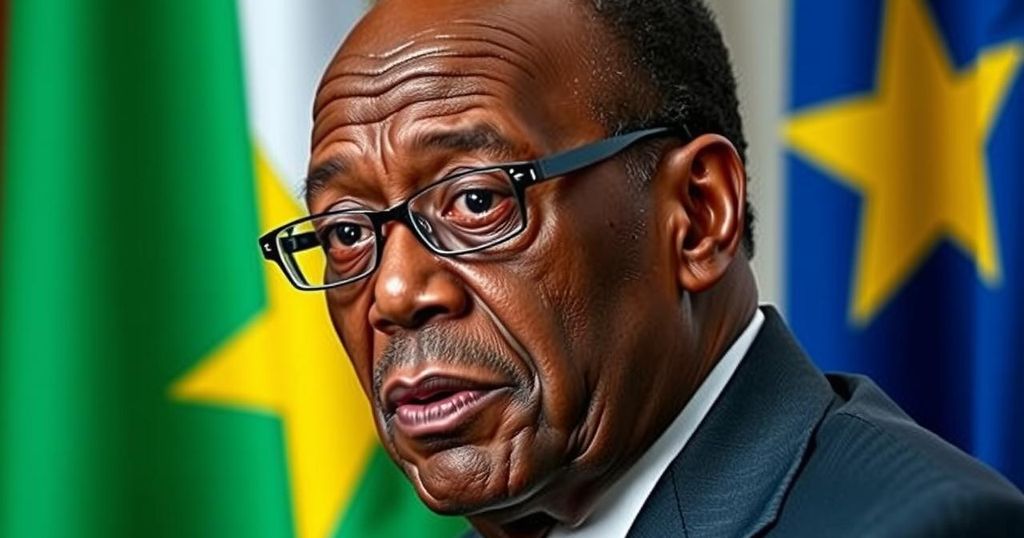Macky Sall, former president of Senegal, seeks to reenter politics through a newly formed opposition coalition, raising concerns about his motives amid ongoing political turmoil. His past controversies regarding public finance and a tumultuous relationship with current Prime Minister Ousmane Sonko underscore the complexities of Sall’s political comeback from abroad as Senegal faces a crucial electoral moment.
Macky Sall, the former president of Senegal, is attempting to make a political comeback from abroad by leading a newly formed opposition coalition in the upcoming snap parliamentary elections. Following his departure from office in April—after serving twelve years—Sall’s return raises concerns regarding his motives and the implications for Senegal’s political landscape. Political analysts suggest that Sall’s decision may be driven by a desire to protect his interests amid potential legal repercussions from the current administration led by Prime Minister Ousmane Sonko.
Sall’s administration faced significant criticism for leaving Senegal’s public finances in disarray, prompting allegations from Sonko of corruption and mismanagement. The political journey of Sall has been tumultuous, culminating in a political standoff with Sonko that resulted in civil unrest and a controversial delay of presidential elections earlier this year. Sall’s successor, Bassirou Diomaye Faye, recently suffered a defeat in the elections that reinstated a power struggle in the parliament.
As he campaigns for his coalition, the Takku Wallu Senegal, Sall highlights the need to defend the achievements of his presidency while cautioning against the perceived failures of the new government. His return is seen as unconventional, breaking from the traditional restraint of former leaders, underscoring his resolve to remain relevant in Senegal’s political dynamics.
Despite his absence from the country, Sall has been active in addressing the public, although his approach via speakerphone contrasts with Sonko’s energetic campaigning across Senegal. Government officials have stated that Sall’s return would be secured under law; however, they caution that legal challenges—potentially including accusations of high treason—could complicate his situation. It remains to be seen if the Senegalese public will embrace his return given the longstanding political turmoil and unrest experienced during his administration.
The political landscape of Senegal has undergone significant upheaval in recent years, particularly under the leadership of Macky Sall. His tenure was characterized by a notable standoff with opposition leader Ousmane Sonko, which culminated in widespread violence and civil unrest, particularly surrounding the presidential election postponement earlier this year. Sall’s exit from the office followed a tumultuous decade that witnessed allegations of corruption and deteriorating public finances. With a new government now in place, Sall’s attempt to regain influence from Morocco poses questions about the stability of Senegal’s political future and the potential for renewed conflict with the current regime.
The return of Macky Sall to the political arena demonstrates his desire to maintain influence in a rapidly evolving landscape. His coalition’s formation and strategic communication highlight the ongoing tension between former leaders and the current administration. As Senegal approaches significant legislative elections, the implications of Sall’s actions will resonate through the nation’s political discourse. The public’s reception of his comeback remains uncertain, especially considering the deep-seated grievances from his administration and the recent socio-political upheavals.
Original Source: www.arabnews.com






